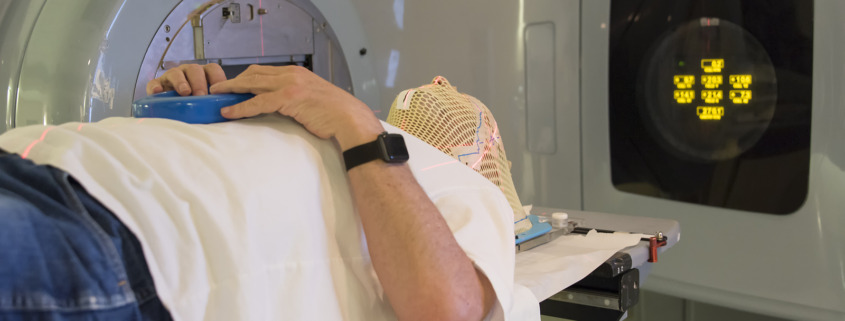Radiotherapy Treatment Success Better For Non-Smokers
The increased risk of developing cancers among smokers has been widely publicised over the years, but research has found that those who quit their habit are also more likely to achieve success with their radiotherapy treatment.
Smokers can develop long-term problems during treatment
Cancer Research UK has recently published research showing that smokers have a greater chance of developing long-term problems when undergoing treatment for breast cancer.
Radiotherapy is a standard treatment given to cancer patients, as it has been shown to be one of the most effective means of destroying cancer cells and reducing the risk of it returning.
However, there is a very small chance that other tissue, such as the lungs, can get an incidental dose of the radiotherapy. This could result in patients developing complications from their treatment, such as radiation-induced lung cancer.
However, Carolyn Taylor, professor of Oncology at The University of Oxford, reassured patients that “for people who don’t smoke, the risks of developing a radiation-induced lung cancer are very, very small”.
This is unless they are long-term smokers who do not give up when they start their breast cancer treatment, as their risk is much higher.
Taylor’s team of researchers found that the risk of dying from lung cancer due to their treatment for non-smokers is less than one per cent. Therefore, it is much safer for them to go ahead with the treatment to eradicate breast cancer and give them the best chance of survival.
However, this risk increases to up to six per cent for smokers that carry on with their habit during treatment.
Quitting can reduce this risk
The study also showed that long-term smokers who are able to quit before their radiotherapy can substantially reduce their risk of developing radiation-induced lung cancer.
It could even fall to as low as those who have never smoked before, which is why it is really beneficial for smokers to try and break their habit before they undergo radiotherapy if they can.
Taylor recognises that this could be too much to ask from lots of smokers, as receiving a breast cancer diagnosis is already a “really stressful time”.
She added: “For long-term smokers, trying to give up smoking just after being diagnosed with cancer strikes me as a really big ask.”
Therefore, it is important they seek out the available smoking cessation resources if they do think they are able to do it, as it could have a big impact on their future health.
How the Tobacco and Vapes Bill could help
The government’s Tobacco and Vapes Bill, which was introduced in parliament on November 5th 2024, could help current and future patients have the most successful cancer treatment possible.
It will do this by extending the indoor smoking ban to certain outdoor settings, such as children’s playgrounds and outside schools and hospitals, and preventing the sale of tobacco products to anyone who is 15 or younger this year to create a smoke-free generation.
Health and social care secretary Wes Streeting said: “Unless we act to help people stay healthy, the rising tide of ill-health in our society threatens to overwhelm and bankrupt our NHS. Prevention is better than cure.”
Smoking alone kills 80,000 people in the UK every year, and more than 100 GP appointments an hour are attributed to smoking.
When it comes to cancer, two in three long-term smokers are likely to die from a smoking-related disease and tobacco smoke causes 27 per cent of cancer deaths in the UK.
It is the cause of at least 16 types of cancer, as well as other conditions, such as heart disease. It is also the biggest cause of lung cancer in the country, accounting for six in ten cases.
The longer someone smokes, the greater risk they have of poor health, which is why it is essential not to put off quitting, as one day they might need radiotherapy for breast cancer and smoking will increase their risk of developing lung cancer from their treatment.
Improvements in radiotherapy
Although smokers might find this research worrying, the good news is that radiotherapy treatments are improving all the time. Not only is the course of medication becoming much shorter, so patients do not have to undergo long, difficult treatments, but it is also much more targeted.
Therefore, the likelihood of the radiation hitting healthy tissue is much lower than it used to be.
Stereotactic radiosurgery, such as GammaKnife, works by targeting the tumour from different directions. This specific aim means there is a reduced chance of it passing through other cells, and it has very little impact on any tissue it does hit.
These highly-focused beams of energy are typically used to treat small tumours, as they are much more targeted.
This form of treatment would be a good choice for smokers, therefore, limiting the impact on radiation on their already unhealthy lungs.


